Widely regarded as "The Oldest Military Treatise in the World," this landmark work covers principles of strategy, tactics, maneuvering, communication, and supplies; the use of terrain, fire, and the seasons of the year; the classification and utilization of spies; the treatment of soldiers, including captives, all have a modern ring to them.
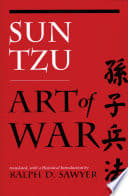
Average Rating
Informations
About the author
Sun Tzu
Author
Sun Tzu was a Chinese military general, strategist, philosopher, and writer who lived during the Eastern Zhou period. Sun Tzu is traditionally credited as the author of The Art of War, a Classical Chinese text on military strategy from the Warring States period, though the earliest parts of the work probably date to at least a century after him.
The Art of War
by Sun Tzu
Books Like The Art of War
If you're looking for books similar to The Art of War, here are some recommendations based on themes, tone, and narrative style.
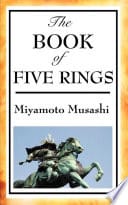
The Book of Five Rings
Miyamoto Musashi
A classic Japanese text on martial arts strategy and philosophical approach to conflict and competition. Musashi provides profound insights into strategic thinking, personal discipline, and tactical decision-making. The work emphasizes understanding one's environment, adapting to changing circumstances, and maintaining mental clarity. Its principles extend beyond martial arts to business, leadership, and personal development.
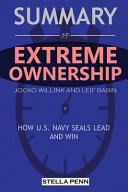
Extreme Ownership
Jocko Willink
A leadership manual written by Navy SEAL commanders exploring principles of leadership and strategic thinking. The book emphasizes personal accountability, adaptability, and strategic decision-making in high-pressure environments. Willink provides practical insights into leadership, teamwork, and overcoming challenges through disciplined thinking. Its military perspective aligns closely with Sun Tzu's strategic principles.
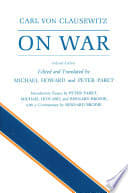
On War
Carl von Clausewitz
A comprehensive treatise on military strategy and philosophy that explores the nature of war as a political instrument. Clausewitz analyzes warfare from both theoretical and practical perspectives, examining strategic principles that complement Sun Tzu's approach. The book provides deep insights into military thinking, leadership, and the complex dynamics of conflict. It is considered a foundational text in military strategy and political theory.
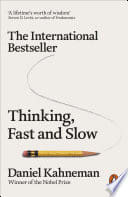
Thinking, Fast and Slow
Daniel Kahneman
A comprehensive exploration of human decision-making processes and cognitive biases. Kahneman reveals how humans think and make strategic choices, examining the interplay between intuitive and analytical thinking. The book provides insights into understanding psychological factors that influence decision-making under uncertainty. Its strategic approach to understanding human cognition complements military strategic thinking.
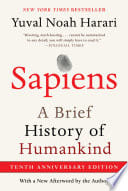
Sapiens: A Brief History of Humankind
Yuval Noah Harari
A comprehensive exploration of human history, examining strategic developments in human civilization. Harari provides insights into how humans have evolved, competed, and developed complex social structures. The book offers a macro-level perspective on human strategy, cooperation, and conflict. Its analytical approach complements strategic thinking in military and social contexts.
Influence: The Psychology of Persuasion
Robert Cialdini
A seminal work exploring psychological principles of persuasion and strategic communication. Cialdini analyzes human behavior, revealing cognitive mechanisms that drive decision-making and compliance. The book provides insights into understanding and leveraging psychological principles in strategic contexts. Its analytical approach complements strategic thinking in various domains.
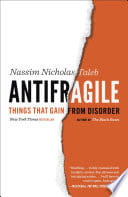
Antifragile
Nassim Nicholas Taleb
A groundbreaking work exploring systems that gain from disorder and uncertainty. Taleb introduces the concept of antifragility, examining how some systems become stronger under stress. The book provides strategic insights into resilience, adaptation, and thriving in complex environments. Its analytical approach complements strategic thinking in various domains.
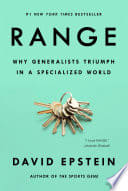
Range
David Epstein
An exploration of the value of generalist thinking and diverse skill development. Epstein challenges narrow specialization, arguing for broad learning and adaptable strategies. The book provides insights into developing flexible thinking, problem-solving, and strategic approaches across domains. Its analytical perspective resonates with strategic thinking principles.
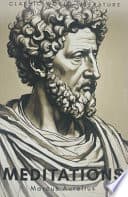
Meditations
Marcus Aurelius
A philosophical work exploring Stoic principles of leadership, self-discipline, and strategic thinking. Aurelius offers profound insights into personal conduct, rational decision-making, and maintaining composure under pressure. The text provides guidance on understanding human nature, managing emotions, and approaching challenges with wisdom and restraint. Its strategic perspective on personal and leadership development resonates with military and philosophical thinking.
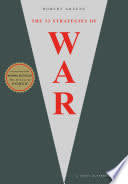
The 33 Strategies of War
Robert Greene
A modern exploration of strategic thinking drawing from historical military and political examples. Greene analyzes various strategic approaches, providing practical insights into conflict resolution and personal empowerment. The book offers a contemporary interpretation of strategic principles, exploring psychological and tactical dimensions of conflict. Its comprehensive approach resonates with Sun Tzu's strategic philosophy.
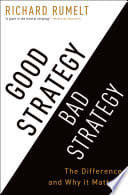
Good Strategy Bad Strategy
Richard Rumelt
A definitive work on strategic thinking and organizational leadership. Rumelt distinguishes between effective and ineffective strategic approaches, providing practical insights into developing coherent strategies. The book explores how to diagnose challenges, create focused strategies, and implement effective action plans. Its analytical approach resonates with military strategic principles.
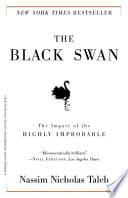
The Black Swan
Nassim Nicholas Taleb
An exploration of unpredictability and strategic thinking in complex systems. Taleb examines rare, high-impact events and their significance in understanding risk and strategy. The book provides insights into navigating uncertainty, recognizing limitations of traditional predictive models, and developing adaptive strategies. Its philosophical approach resonates with strategic thinking.
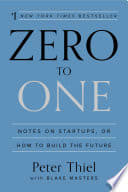
Zero to One
Peter Thiel
A strategic guide to innovation and creating transformative businesses. Thiel provides insights into developing unique, breakthrough strategies in competitive environments. The book explores principles of technological innovation, strategic thinking, and creating value through unconventional approaches. Its analytical perspective resonates with strategic principles.
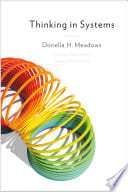
Thinking in Systems
Donella Meadows
A comprehensive exploration of systems thinking and strategic analysis. Meadows provides insights into understanding complex systems, their interactions, and strategic interventions. The book offers a holistic approach to analyzing and managing complex environments. Its strategic perspective complements military and organizational thinking.
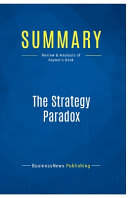
The Strategy Paradox
Michael Raynor
A strategic analysis of organizational decision-making and uncertainty management. Raynor explores the challenges of developing effective strategies in unpredictable environments. The book provides insights into strategic planning, risk management, and adapting to complex, dynamic systems. Its analytical approach complements strategic thinking principles.
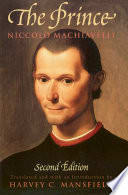
The Prince
Niccolò Machiavelli
A groundbreaking political treatise examining power, leadership, and strategic manipulation. Machiavelli analyzes political strategy, offering pragmatic advice on maintaining power and navigating complex political landscapes. The book provides insights into human nature, strategic thinking, and the practical application of political principles. Its analytical approach to leadership and conflict mirrors Sun Tzu's strategic perspectives.
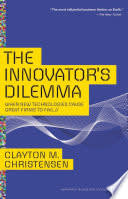
The Innovator's Dilemma
Clayton Christensen
A groundbreaking business strategy book exploring technological innovation and competitive dynamics. Christensen analyzes how successful companies can fail by not adapting to changing market conditions. The book provides strategic insights into understanding disruption, maintaining competitive advantage, and making strategic decisions. Its analytical approach mirrors strategic thinking in military contexts.
No account connected — sign in to comment.
